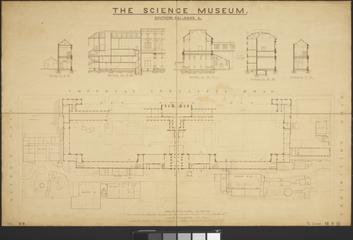
Pauline Coldrick interviewed by Frank Paterson (session 2 of 2)
- Made:
- 2019-01-31
- maker:
- Frank Paterson
Oral history interview with Pauline Coldrick conducted and recorded by Frank Paterson on 31 January 2019 (session 2) at the interviewee's home. Duration: 1 hour 10 minutes. [Track 01] Bert Gemmell, Chief Passenger Manager, York British Rail Headquarters, organisation, public relations [00:01:49] [end of track 01] [Track 02] Passenger Department organisation, marketing (Len Jarvis), sales (Colin Hogg), market research and finance (Ken Westerby), budgeting, use of external consultants, surveying passenger trains, publicity campaigns, renewing image of British Rail (BR); [00:03:35] BR television advertising, external contractors, beginning of TransPennine Express train, Ken Dodds, Bridlington-Scarborough; [00:06:40] mood and working conditions in Passenger Department, equipment, typewriter allocation by hierarchy, content typed; [00:08:40] Bert Gemmell (BG) dictation story; [00:10:45] Eastern Region catering committee, BG opened a restaurant in a railway carriage 1978, The Sidings; [00:13:20] BG’s departure, PC’s relationship with BG, secretary grade glass ceiling; [00:16:05] PC volunteering with the police in spare time, Colin Hogg BR Eastern Region representative on York Crime Prevention Committee, taking meeting minutes for Crime Prevention Committee and Drug Addiction Panel; [00:18:40] Colin Driver, new Chief Passenger Manager, regrading application into management, no support from trade union, LDC trade union representatives attitude to secretaries, 1979, general attitude towards women in BR; [00:23:45] relationship between secretaries, seniority respect, personal ambitions, enjoying work; [00:26:15] typing pool camaraderie, relationships; , Christmas dinners, annual office outings, benefits, how trips were organised, example of outings; [00:29:40] changes with Colin Driver, PC skills development; Len Jarvis resigned, Bert Reynolds replaced him; [00:32:10] Customer Care Panels, Disabled Passenger Panel, origins and panel composition, 1981 International Year of Disabled Persons, campaign by Colin Driver, Viscount Ingleby, Baroness Masham, Barbara Parker, Bill Rodgers, Bill Buchanan, Donald Dempsey, contribution of panel members, meetings at the House of Lords; [00:37:55] Valerie Stewart, market research; [00:38:45] Colin Driver promoted, replaced by Fergus Gibson, then Ivor Warburton (IW); differences between different Chief Passenger Managers, personalities, reputations; relationship with IW; [00:44:25] Norman Blackstock replaced Ivor Warburton as Passenger Manager, changes not impacting PC; [00:46:30] how PC addressed managers, using surnames, changes throughout career, personal views, how other staff addressed managers; [00:48:10] sectorisation 1986, new promotion, Carol Bustard was manager [00:49:15] [end of track 02] [Track 03] sectorisation of passenger department, promotion to Provincial; relationship with Norman Blackstock; BR new job opportunities with sectorisation, committee matching people and job, Norman Blackstock replaced by Carol Bustard; PC moved to Provincial, manager was David Wharton-Street, relationship with David Wharton-Street; difficult time in BR, job insecurity, redundancy rumours; [00:05:00] PC was External Liaisons Manager in Provincial, liaising with Transport Users Consultative Committee (TUCC), county councils, closures and openings of stations, miscellaneous role, Provincial sponsoring athletes, little job satisfaction; [00:08:00] new re-organisation, enjoyed the work atmosphere, lack of challenges in work, example work on Settle-Carlisle line closure preparation, computerisation, first computers in offices; [00:10:45] retirement 1989; various voluntary work for charities and police, appointed to board of the Railway Housing Association, history of Railway Housing Association, changes in governance, scale of activities, professional management [00:18:30] [end of track 03] [end of interview]
Oral history recording made in continuation of the NAROH project (National Archive of Railway Oral History), recording stories of people who worked on the railways